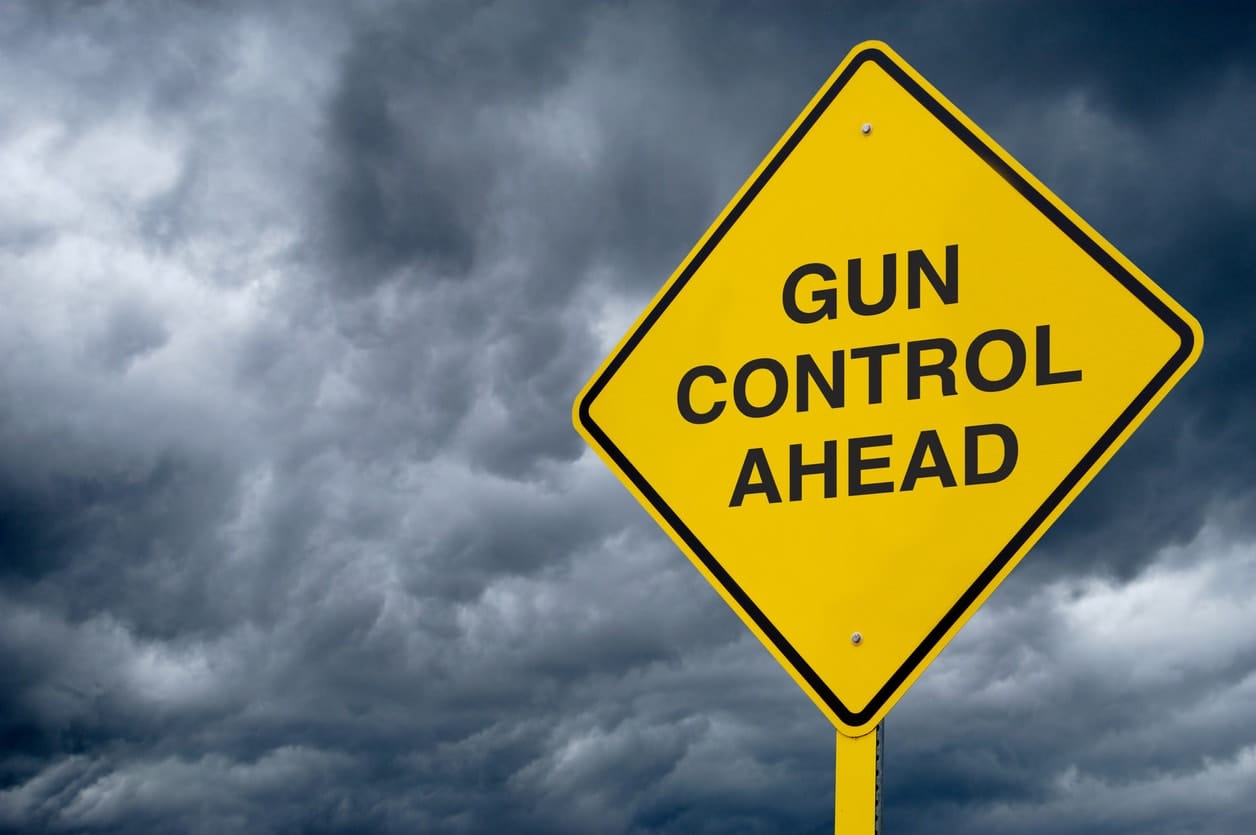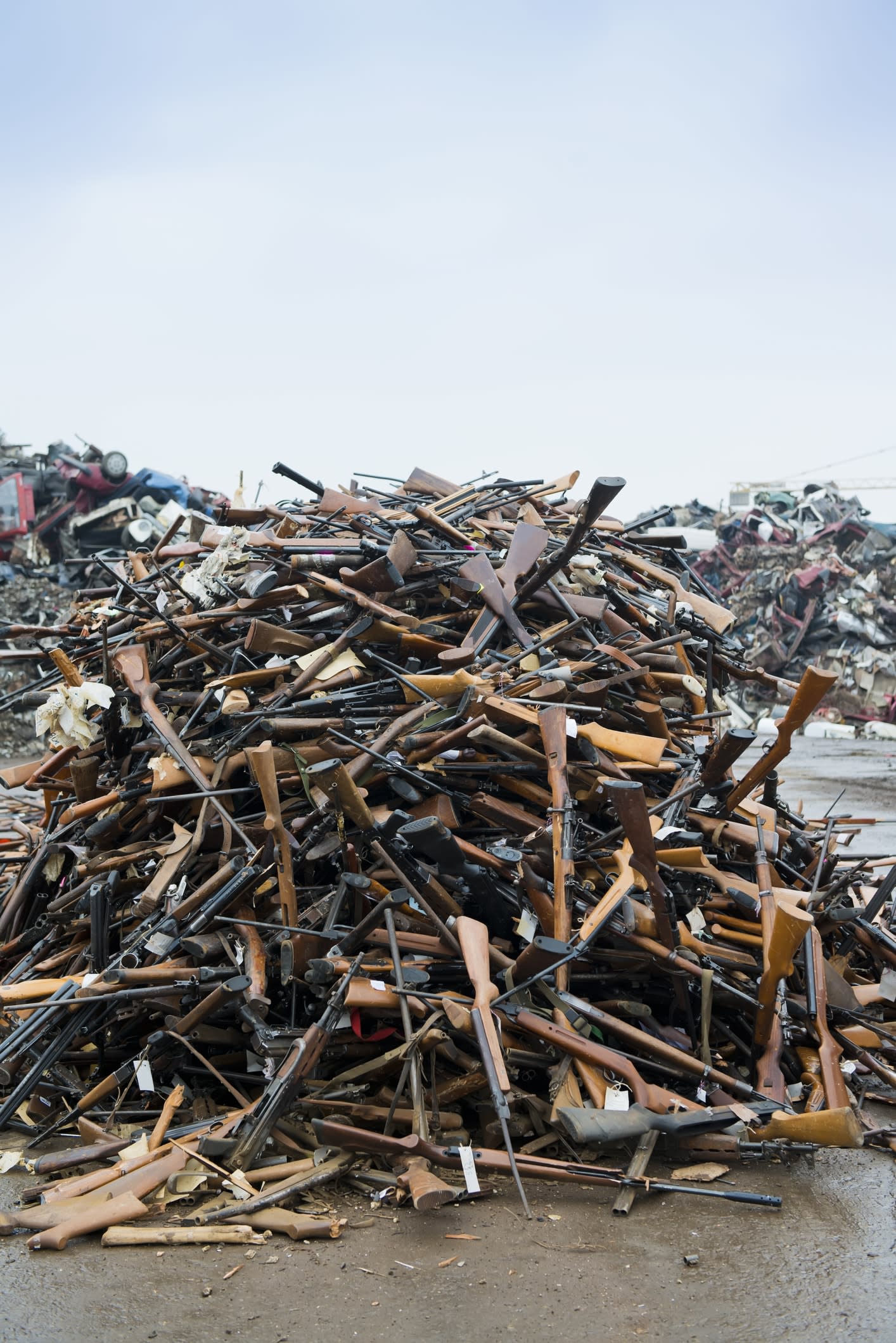
At least 50 people died and many others remain in hospital after the mosque attacks in Christchurch, New Zealand. This episode has caused an outpouring of grief, but also concern as to how New Zealand has dealt with firearm control.
Media reports were quick to highlight that New Zealand did not have a gun register, nor was there a mechanism to identify how many firearms existed in the country. It's on this point that Australia may serve as a model to New Zealand.
Gun control: the Australian experience
Following very little change in the decades preceding the 1990s, Australia became a world leader on gun control policy following the events in April 1996. Thirty-five people were killed when a gunman opened fire at the Port Arthur Historic Site in the state of Tasmania. The killer had used semi-automatic weapons to wreak havoc in the state where unlicensed individuals could obtain such weapons.
The shock and anger following these events motivated the John Howard-led Coalition government, which had been in power for just weeks, to seek ways to stop such crimes occurring in future.
The government, however, was constrained by the constitutional framework. The Australian constitution provided state governments with the authority over the provision of law and order, while the national government had authority to ban the importation of firearms under its customs regulations.
Ms Ardern need not be concerned by the political opponents mobilising against her coalition partners, nor does she need to negotiate around constitutional barriers.
The momentum towards national firearm control had been flagged by Australian policymakers in the aftermath of the Hoddle Street and Queen Street killings in Melbourne in 1987. Mass shootings in Sydney in 1990 and 1991, in which 11 people were killed, contributed to a growing sense that a national approach to firearms was needed. Some states, such as Queensland and Tasmania, however, indicated an unwillingness to sign up to a national gun control scheme.

Following these mass shootings, uniform gun laws became a prominent issue in 1995 at the meeting of the Australasian Police Ministers Council (APMC). New Zealand, whose police minister was present at the crucial meeting of the APMC, was the only jurisdiction that declined to join the party. This decision was a direct cause of the sizeable gaps that remain in New Zealand gun laws.
The debate in Australia, however, changed following Port Arthur. The Howard government reacted swiftly and reached an agreement with the states to introduce national uniform gun laws in 12 days. This was a remarkably prompt response to a policy issue that successive governments had been unable to deal with up until that point.
When we interviewed Mr Howard in 2018 for our project on policymaking in Australia, he argued that a series of events aligned and enabled the government to implement holistic policy changes.
As Mr Howard put it: "You had the combination; it was a terrible disaster, the country was reeling, I had just been elected and had a huge majority … and sensed if I don’t use this authority to the ultimate, when are you ever going to do something about this."
Despite strong support for the policy in cities, the Howard government faced a backlash from regional and rural areas. In particular, farmers were concerned about how the gun laws would impact on their ability to use firearms, and mobilised against the National Party and its leader at the time, Tim Fischer.
The implementation of the policy, however, has been broadly successful, and Australia is now seen as a world leader on this issue.
The lessons from Australia
Unlike Australia, New Zealand is not a federation. This means that the national government does not have to be concerned about how the constitution distributes power among levels of government to the same extent apparent in Australia.
Moreover, the Ardern government, which was first elected in late 2017, enjoys strong public support, according to published opinion polls. This bodes well for Prime Minister Ardern, who has vowed changes to firearms laws.
Speaking in response to the mass shooting, and apparent public opinion, Ms Ardern promised that "our gun laws will change". While the Labour Party relies on support from Winston Peters and his New Zealand First Party in order to govern, Mr Peters is reportedly open to changing national gun laws.
As a result, the road ahead for the Ardern government looks somewhat easier than that of the Howard government. Ms Ardern need not be concerned by the political opponents mobilising against her coalition partners, nor does she need to negotiate around constitutional barriers.
It's important for the New Zealand government, however, to act swiftly. The speed at which the Howard government implemented gun control policy reduced opportunities for special interests to water down policy options. This, in turn, meant the government’s full suite of policy changes were brought about without delay or significant revision.
The path is now open for New Zealand to bring about gun control reforms. Doing so will hopefully avoid similar shocking events from occurring in the country in future.
Dr Zareh Ghazarian is co-author of ‘"From policy intertia to world leader: Australia’s ‘perfect storm’ of gun control’"(with Associate Professor Philip Alpers, University of Sydney), which is to be published in Successful Public Policy: Lessons from Australia and New Zealand, edited by Michael Mintrom, Joannah Luetjens and Paul ‘t Hart, published by ANU Press, and released in May 2019.





